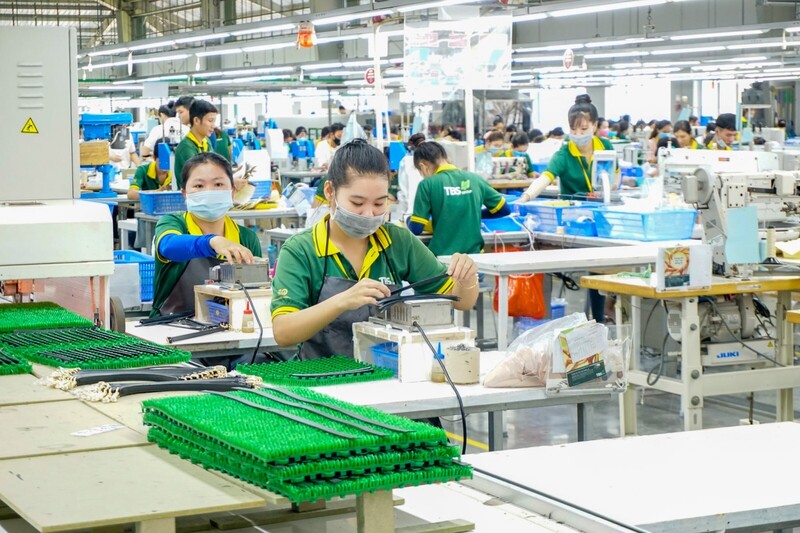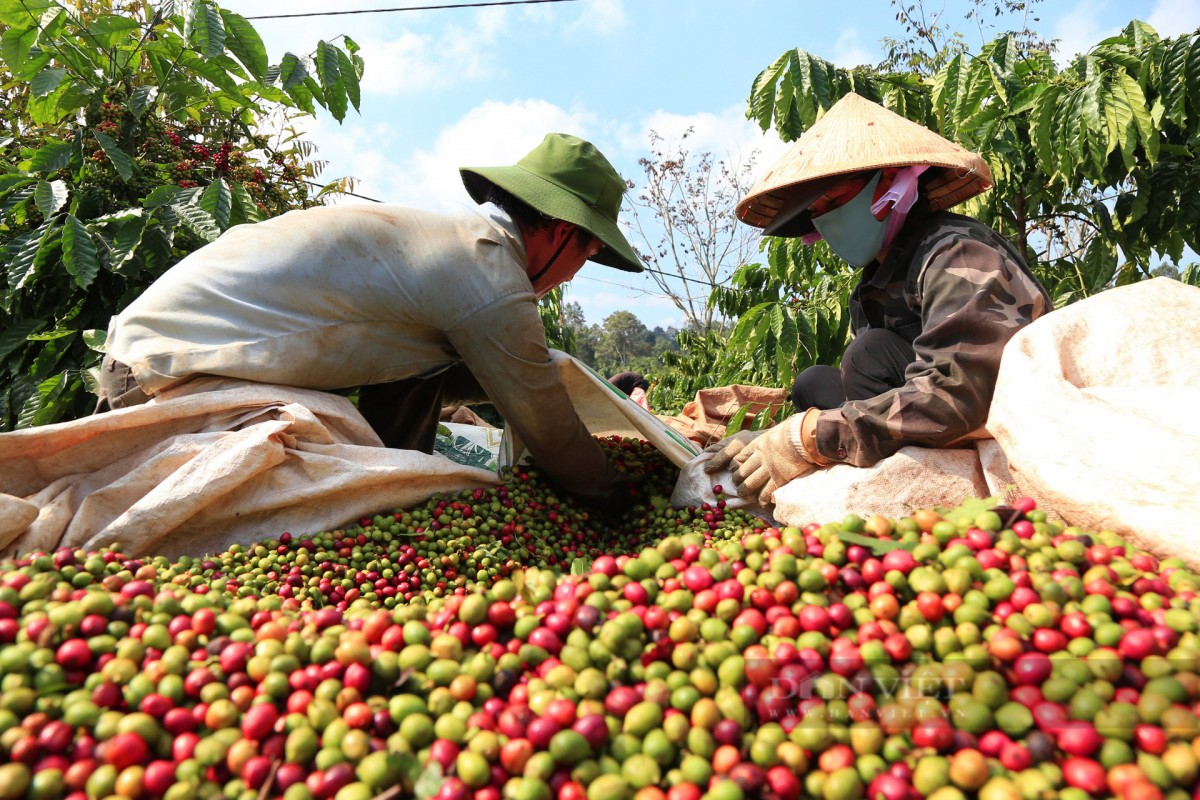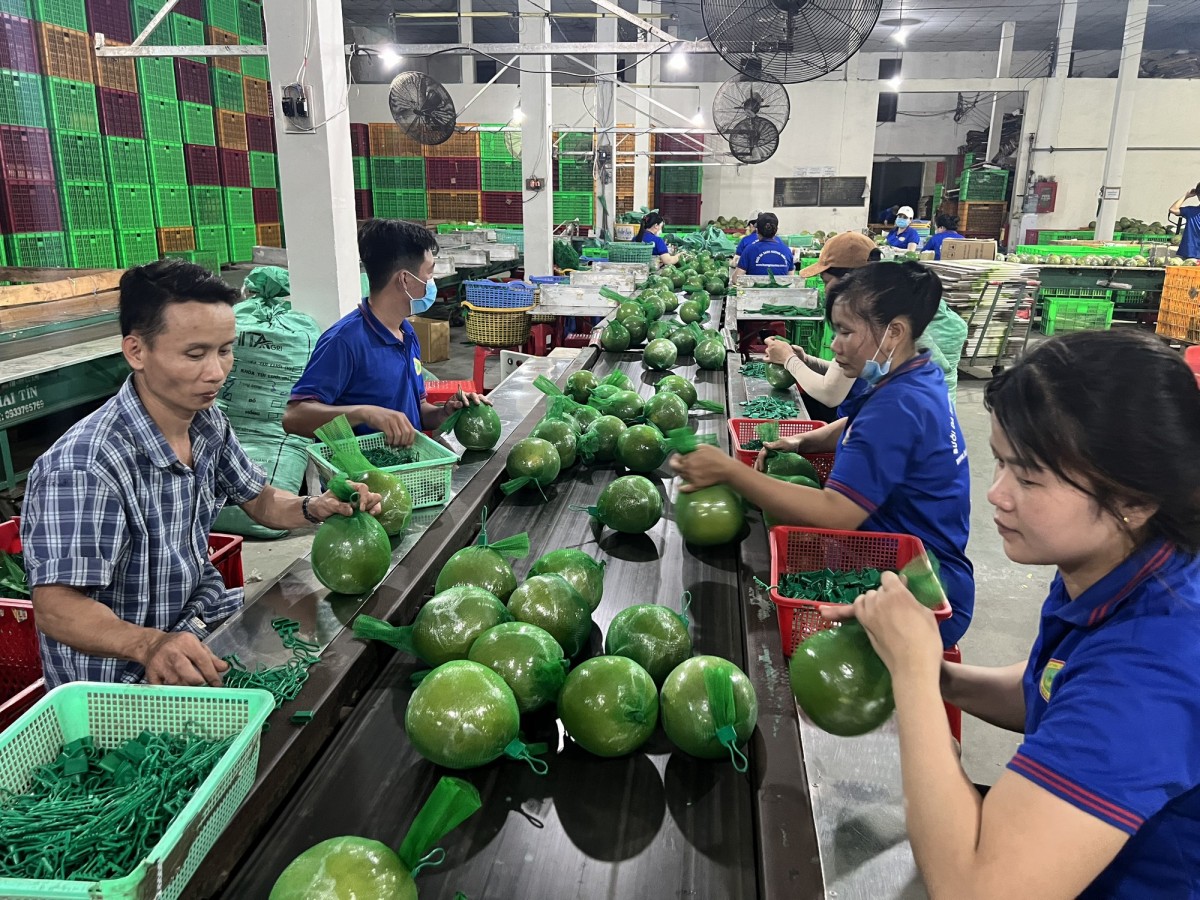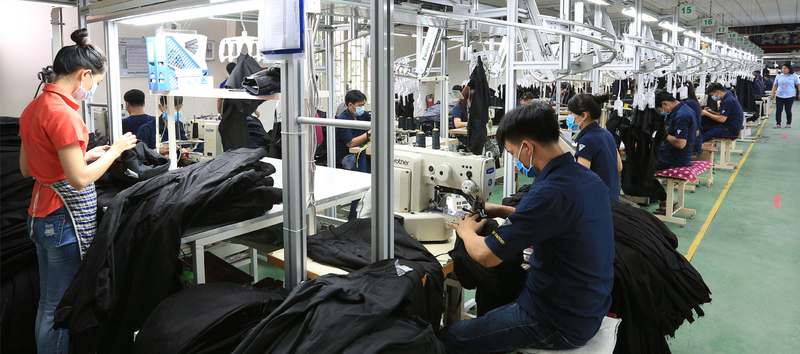
Vietnam’s January PMI signals sustained momentum in industrial production
19:05 | 23/03/2025 13:39 | 03/02/2026Industry
Currently, US companies are allowed to import eight types of fresh fruit from Vietnam, namely dragon fruit, mango, longan, lychee, rambutan, star apple, pomelo, and coconut.
 |
| Currently, US companies are allowed to import eight types of fresh fruit from Vietnam, namely dragon fruit, mango, longan, lychee, rambutan, star apple, pomelo, and coconut |
 |
According to the Vietnam Trade Office in the US, the US is a key market for agricultural products, including seasonal fruits. However, fruit exports to the US must have designated production unit and packager codes, undergo irradiation treatment confirmed by the US Department of Agriculture (USDA)’s Animal and Plant Health Inspection Service (APHIS), and come with a phytosanitary certificate verifying compliance with US plant quarantine requirements. They are also subject to various regulations and laws, such as the Food Safety Modernization Act, Plant Protection Act, and the Plant Protection and Quarantine program.
Additionally, the growing and processing of fruits must comply with standards, such as GlobalGAP, environmental certifications, ISO, HACCP, USDA, and ensure there are no residues of pesticides not registered in the US, no contamination by microorganisms, bacteria, or mold; the quality of the fruit must be ensured throughout the harvesting process.
Compared to other countries exporting to the US, especially those in the Americas, Vietnam’s fruit and vegetable exports also face additional difficulties and challenges. These include seasonality, the competition with similar products of South America and Asia, and small-scale domestic production, which makes it difficult to meet the quantity requirements of importers.
Emphasizing that the US is a potential market for Vietnamese fruits, the Vietnam Trade Office in the US recommended that production units, businesses, and the Government strengthen solutions to overcome difficulties. The office also suggested increasing the added value of seasonal fruits by introducing processed products, such as dried fruits, fruit powder, and canned products that can be consumed year-round. A comprehensive plan should be developed to effectively promote trade in seasonal fruits. Special attention should be paid to creating stories linked to the fruits, leveraging real images of the growing areas, and organizing product showcases at Vietnamese and Asian markets. Furthermore, importers should be invited to visit the growing areas and processing facilities, and relationships with US localities should be fostered to promote Vietnamese brands.
Notably, during the September 12 meeting between Vietnamese Deputy Minister of Industry and Trade Nguyen Sinh Nhat Tan and a USDA delegation led by Deputy Secretary Alexis Taylor responsible for Trade and Foreign Affairs, the issue of opening the market for agricultural products was of special interest to the leaders of both sides.
Opening the market for agricultural products has been a top priority for both nations recently, and significant progress has been made. The US has allowed the import of fresh coconuts from Vietnam and is in the final stage of permitting the import of passion fruit. For its part, Vietnam opened its market to US grapefruit in February 2023, peach and nectarine in July 2024. Agencies under the Vietnamese Ministry of Agriculture and Rural Development and the USDA are finalizing procedures for other products, such as orange, tangerine, plum, and seedless lemon.
This move demonstrates the efforts of both sides to diversify agricultural products permitted for trade, promising significant benefits for the agricultural sectors and consumers of both nations. Additionally, the US also hopes to facilitate the export of certain plant products and animal feed to Vietnam./.

19:05 | 23/03/2025 13:39 | 03/02/2026Industry

19:05 | 23/03/2025 10:55 | 03/02/2026News and Events

19:05 | 23/03/2025 10:53 | 03/02/2026Industry

19:05 | 23/03/2025 20:48 | 02/02/2026News and Events

19:05 | 23/03/2025 11:56 | 02/02/2026News and Events